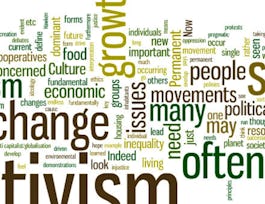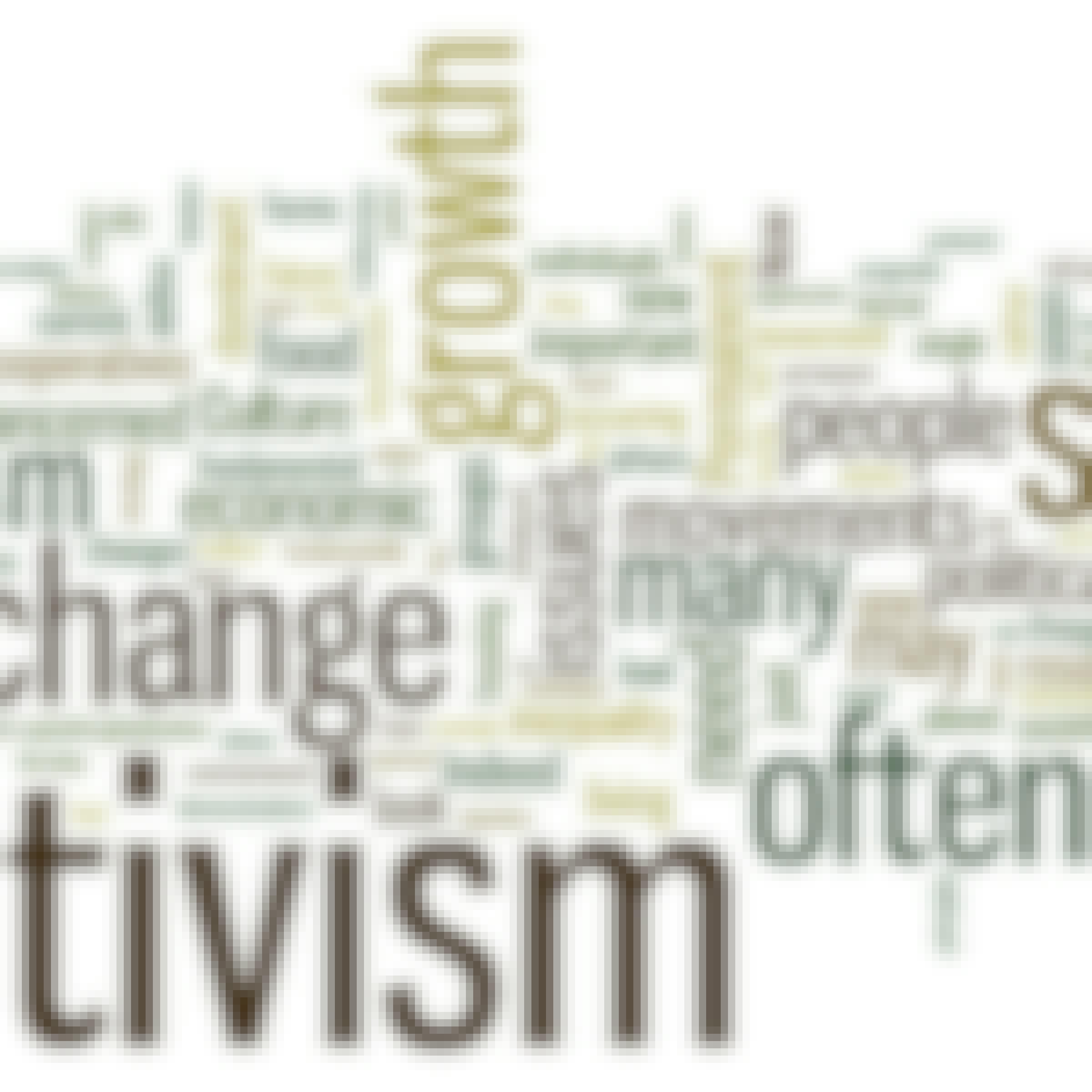- Explore
- Social Sciences
- Governance and Society
Governance and Society
Earn Your Degree
Most Popular Courses
Finish a Governance and Society Course in Under 24 Hours
Discover the World of Public Goods
Top Rated Courses
Learn about race, inequality, and social justice
Most Popular Certificates
Frequently Asked Questions about Governance and Society
Governance, broadly defined, refers to the ways in which society or groups within it organize to make decisions. Thus, while the word “governance” naturally brings to mind “the government,” this concept extends beyond politics to encompass groups of people of any size working together to achieve a collective goal. Understanding how these systems work and knowing how to make your voice heard within them is important for everyone, whether you’re looking to pursue a career in politics or management - or if you just want to be a good citizen.
At scales ranging from a high school chess club to the United States to the United Nations, systems of governance include several key elements: mechanisms for establishing authority, processes for decision-making, and means of enforcing accountability to ensure that these collective decisions are followed.
For example, in the United States, it’s easy enough to simply say that we live in a democracy. But the way that votes are aggregated at the local, state, and national levels, the rules by which our elected representatives make laws, and the different ways that laws are enforced are all critical factors in determining the outcomes produced by America’s system of governance compared to other democracies.
Studying this discipline is all about understanding the importance of these details, as well as how these intertwined elements interact. Having expertise in governance lets you draw connections between how campaigns are financed and how candidates govern, helping to inform your decisions as a voter, as a contributor to political campaigns, or as a political professional yourself. It can also help you anticipate how the structure and the members of your board of directors can determine the course of your company, providing crucial insights to guide the development of your startup as an entrepreneur.
Politicians may be the most familiar examples of professionals in governance, but you don’t have to run for office to have a rewarding career in this area. There are an incredibly wide range of jobs in both the public and private sector that can benefit from knowledge of the structures, processes, and personalities that shape decision-making. And, because this field can impact virtually every aspect of society, you can find jobs related to governance no matter what your specific area or issue of interest.
For example, if you are fascinated by international affairs, you can work in the foreign service as a diplomat, as a national security analyst in the military, or as an academic researcher at a foreign policy think tank. If you’re passionate about environmental issues, you can use a background in governance to work at the local, state, or national-level departments tasked with maintaining air and water quality, or as an expert on issues like climate change or toxic pollution at a non-profit advocacy group. More generally, professionals in public management and administration play an essential role in carrying out day-to-day operations across every area of government.
Governance expertise can be helpful in the private sector as well. The ability to structure effective decision-making systems can benefit the performance of executives, operations managers, and startup founders. Regulatory advisors and consultants can provide invaluable insights on the ways that government policies can impact business revenue and taxation. And banks, hedge funds, and other financial institutions employ a wide range of analysts to identify and measure political risks that can affect investment decisions.
Knowledge of governance and society is essential, whether you want to be an engaged citizen, an effective manager, or a successful politician - and online courses and Specializations on Coursera are making this universally-applicable education more accessible than ever. You can take courses from prestigious institutions like Princeton University, Yale University, the University of Virginia, and the University of London, all at a lower cost than on-campus students with no compromise in quality.
If your career aspirations are in government, you can study public policy, political science, or international diplomacy. Courses in sociology, criminal justice, and forensic science can help you develop expertise in how laws are created and enforced. And if you want to dive into big picture issues, you can learn about human rights, sustainability, and the role of morality in politics.
And regardless of your specific interests in governance and society, online education options available on Coursera offer a combination of low costs and a flexible schedule that can be very appealing for learners that are already working full-time or raising a family.
There are no special skills or experiences you need before learning about governance and society. It’s helpful to have an interest in how local and federal governments function and the role social justice plays in modern society. Intermediate and advanced governance and society topics go into detail on specific issues, like municipal waste, globalization, and climate change, so it’s important to have beginner-level knowledge of how government and society work hand in hand before studying these topics.
People with an interest in social justice plus economics on a micro and macro scale are best suited for roles in governance and society. Roles in government and society also require people who understand social norms and how they evolve over time. Additionally, it’s imperative that people with any role in governance and society understand the importance of voting rights and demographics. The people best suited for these roles need to be compassionate and care about the most vulnerable members of our population, including seniors, those with disabilities, and people who rely on social services.
Governance and society is largely about keeping people safe, and topics in terrorism and counterterrorism will give learners a broad view of how governments can keep us secure from a local, federal, and global standpoint. Governance and society is about more than just how policy is made and enacted. It’s about the intersection of equality, sustainability, and safety, and how societies can come together to create a workable government. For that reason, it’s important to study a wide field of topics related to governance and society. Topics that explore equality, including race, social justice, and feminism, can help learners consider issues outside of their scope. Global diplomacy and international relations may help you explore how societies around the world function. People interested in combating climate change may consider topics that examine sustainable cities.
Careers in government are widely available at the federal, state, and local levels as a public servant. These include careers in law enforcement, case working, public health, and city management. Many communities are also hiring people to work as contact tracers during the COVID-19 pandemic. For people interested in working in fields related to social justice, many public and private sectors hire community organizers to educate, inform, and organize groups of people and organizations. Private or public sector think tanks may hire people with a background in governance and society for community planning related to social advocacy and environmental issues.
Online Governance and Society courses offer a convenient and flexible way to enhance your existing knowledge or learn new Governance and Society skills. With a wide range of Governance and Society classes, you can conveniently learn at your own pace to advance your Governance and Society career.
When looking to enhance your workforce's skills in Governance and Society, it's crucial to select a course that aligns with their current abilities and learning objectives. Our Skills Dashboard is an invaluable tool for identifying skill gaps and choosing the most appropriate course for effective upskilling. For a comprehensive understanding of how our courses can benefit your employees, explore the enterprise solutions we offer. Discover more about our tailored programs at Coursera for Business here.








































































































































